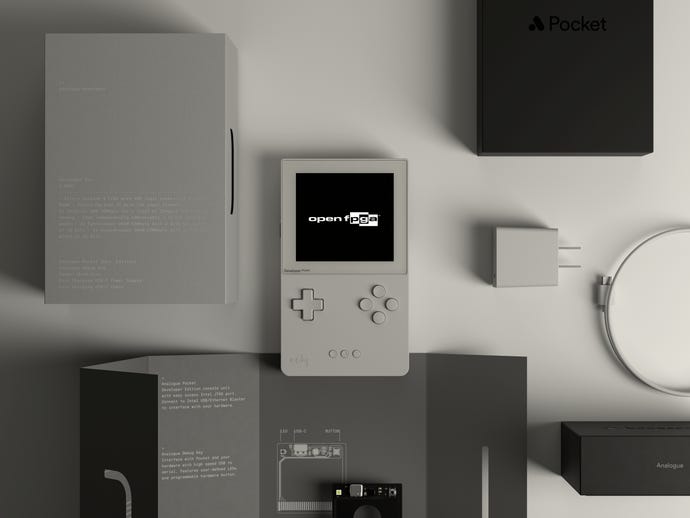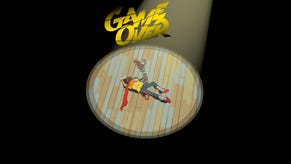With its latest update, the luxury Game Boy replica Analogue Pocket just got a lot more interesting
Analogue Pocket’s new update fixes an annoying issue with this luxury gaming hardware, and launches the opinion-splitting openFPGA scheme to the public.
The Analogue Pocket, the gorgeous but expensive modern Game Boy replacement, gets its first major update today – and it’s bringing with it significant new features.
The new features added today are headlined by the introduction of ‘openFPGA’, something which is an impressive new string to the Analogue Pocket’s bow – while also being a feature that has ruffled feathers in the wider retro gaming community. The update also includes the much-anticipated 1.1 update to the Pocket’s operating system. Which is a bigger deal that it sounds.
- openFPGA launch, and the community response
- Analogue update 1.1, including flashcart fixes
- Future Analogue updates dated
The Ballad of openFPGA
Peacockingly described by Analogue as “the future of video game preservation”, openFPGA basically opens up the Analogue Pocket hardware to make it an ecosystem for deploying emulation of other gaming hardware on them device – all using the game-changing FPGA technique.
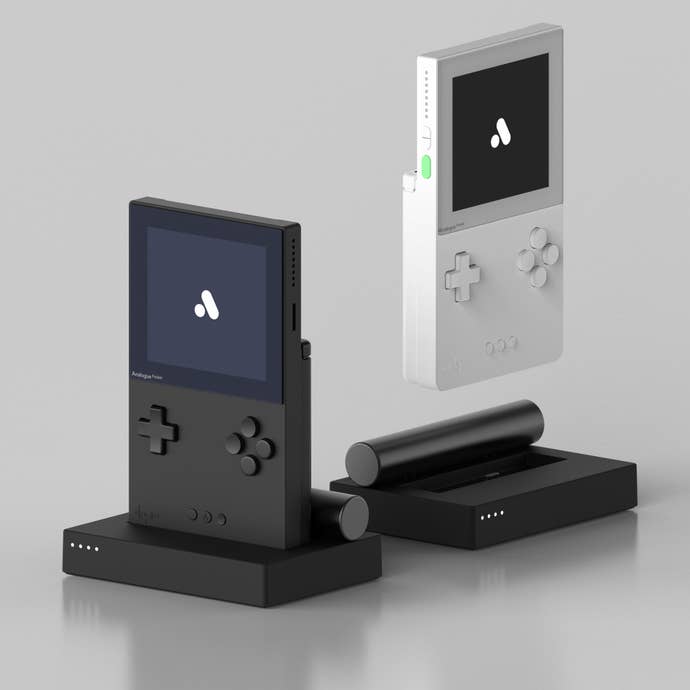
Standing for field-programmable gate array, FPGA is designed as a replacement for traditional emulation, which can introduce inaccuracies, bugs, and quirks to games compared to how they played on original hardware. It’s essentially a chip that can be programmed to act as another chip at the hardware level - meaning you can program it to act exactly like a Game Boy, or Super Nintendo, or Mega Drive.
FPGA has been Analogue’s bread and butter thus far, though it isn’t unique to the company. If you’ve heard of a “MiSTer” device, it’s a more grass-roots equivalent of what Analogue has been doing, where fans build custom devices out of modular parts, like a PC build, and others program and release FPGA ‘cores’ to allow said devices to play of games from different hardware backgrounds with the extreme accuracy the FPGA cores afford. Meanwhile, Analogue has chosen to release specific hardware that plays original cartridges – devices that only play the content of specific system(s), acting like posh modern versions of your favorite retro consoles.
Analogue has divided opinion among some as a result. Some see it as a ‘gentrification’ of retro gaming, releasing a modern Game Boy/Color/Advance for $220 – but the appeal of the retro romanticism and slick stylings of the device, especially for those with original carts, is undeniable. Now, a little bit of MiSTer-style utility comes to the Analogue Pocket, as through openFPGA preservationists and other such experts can port existing FPGA solutions or create all-new ones, allowing the Pocket to play games from more types of gaming device.
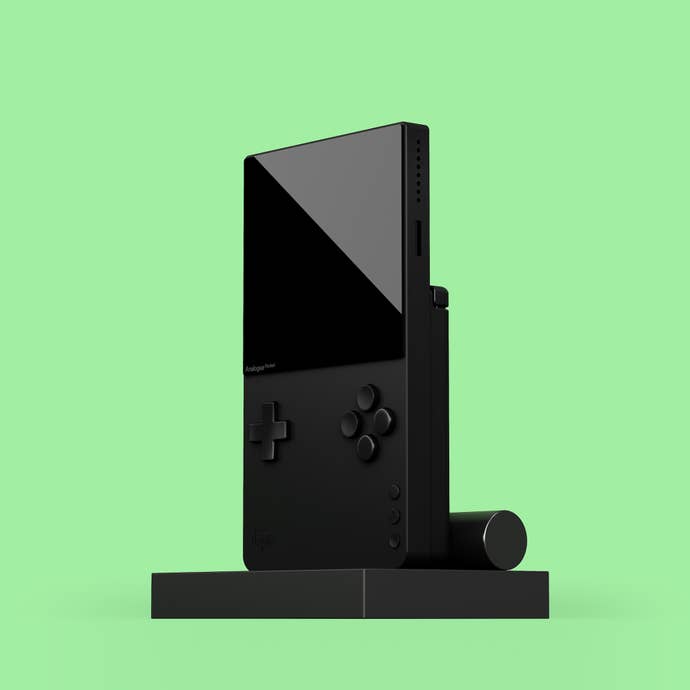
In fairly characteristic fashion, Analogue is launching openFPGA with a core they’ve developed that emulates the PDP-1, the hardware that powered the first digital video game, 1962’s Spacewar! Owners of an Analogue Pocket can download the update and play Spacewar!, but the implication is clear beyond that: fan programmers can now get stuck in, and you could soon be using the Pocket to play NES, SNES, Mega Drive, and beyond. The upper bounds of the system’s power are something I’ll leave for the pros to figure out – but there’s scope for many gaming libraries to become Pocket-compatible.
Analogue is providing resources and a full SDK for developers, and some have had early access to the openFPGA tools already. It’s even sending special Analogue Pocket openFPGA ‘development kits’ out to selected people - but any Pocket device can technically be used as a devkit.
This has ruffled feathers among MiSTer devotees and the like, who point out that what Analogue is doing is opening up their machine to allow other people to create cores and software free-of-charge that’ll then make Analogue’s device more attractive and profitable. They say Analogue is asking developers to build cores for them for free. It’s a prickly issue, with no absolute right or wrong answer. As imitable retro expert Bob from RetroRGB explains, it’s up to individual developers to decide how they proceed.
For Analogue Pocket owners, however, it theoretically is a win-win situation. Some cores inevitably will be developed, expanding the Pocket’s abilities and utilities further. It was a nifty little machine to begin with - and more stuff for it will inevitably make it better.
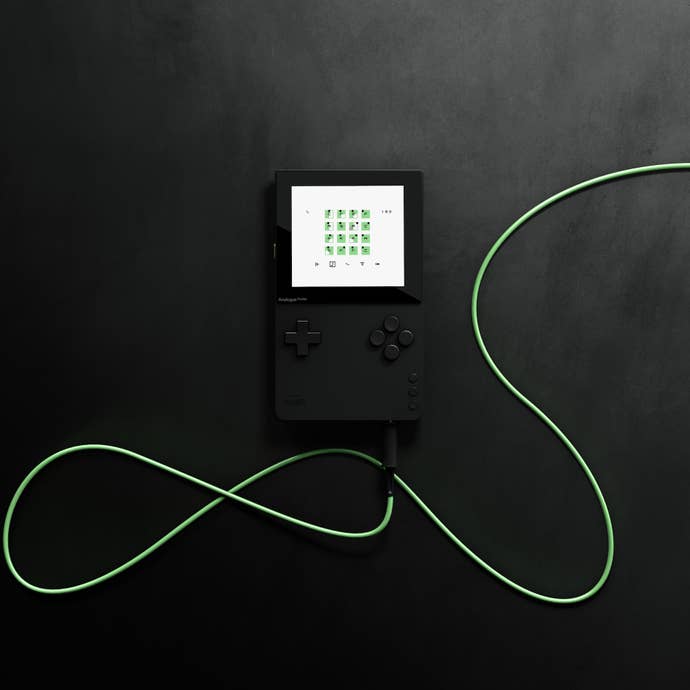
Analogue Pocket OS 1.1 Release
Beyond the openFPGA launch, today’s slew of Analogue updates also includes the release of the v1.1 beta for the Pocket’s operating system. This has been hotly anticipated – and, good news! – it makes some significant changes.
First thing’s first: when I reviewed the Analogue Pocket, I noted that my favorite flash cart, the Everdrive GBA X5, didn’t function properly with the machine, despite working properly on original GBA hardware. Flash cart legend Krikzz even confirmed the problem was not their side. That it was something Analogue would need to fix.
Mercifully, Analogue appears to have quietly done so, though there is no acknowledgement in any update notes. I’ve been testing the new firmware, and my Everdrive GBA X5 now functions the same on my Pocket as on a regular GBA.
That’s a small bug fix that’ll please nerds like me, then, but there are wider features also added in the update. It adds small things, like support for more types of bluetooth controllers when the Pocket is docked and plugged into a TV. There’s also a new ‘Memories’ feature, offering up 128 memory slots that can be used to save a game’s state to return to later, even when using original cartridges.
Finally, and perhaps most interesting, there’s a beta of a new ‘Library’ feature, where you’ll be able to build up a library of your authentic game cartridges and view information on them that will eventually be pulled in from a database. This will mean you can search and explore through a library on the Pocket, giving it broader functionality as an all-in-one device.
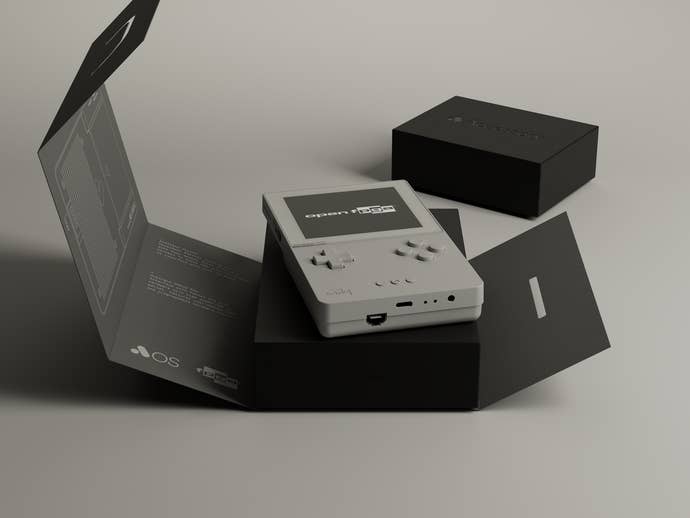
Future Analogue Update Schedule
Finally, as part of today’s reveals, Analogue has announced its intentions for the next several months in terms of the ongoing development of the Pocket and its operating system.
Specifically, August will be dedicated to delivering more openFPGA features, but then in September we should see Full Button Remapping, Screenshots, the ability to save Game Boy Camera images to a microSD card, DAC support, and the full, final versions of the Library and Memories features.
In October, new display modes that change the look and feel of games and new tracking tools will be released. Somewhere in this timeline, though not stipulated, Analogue needs to ship adapters that allow the use of the Pocket to play Neo Geo Pocket, Atari Lynx, and TurboGrafx-16 cartridges. All were announced alongside the Pocket, but none have yet launched.
